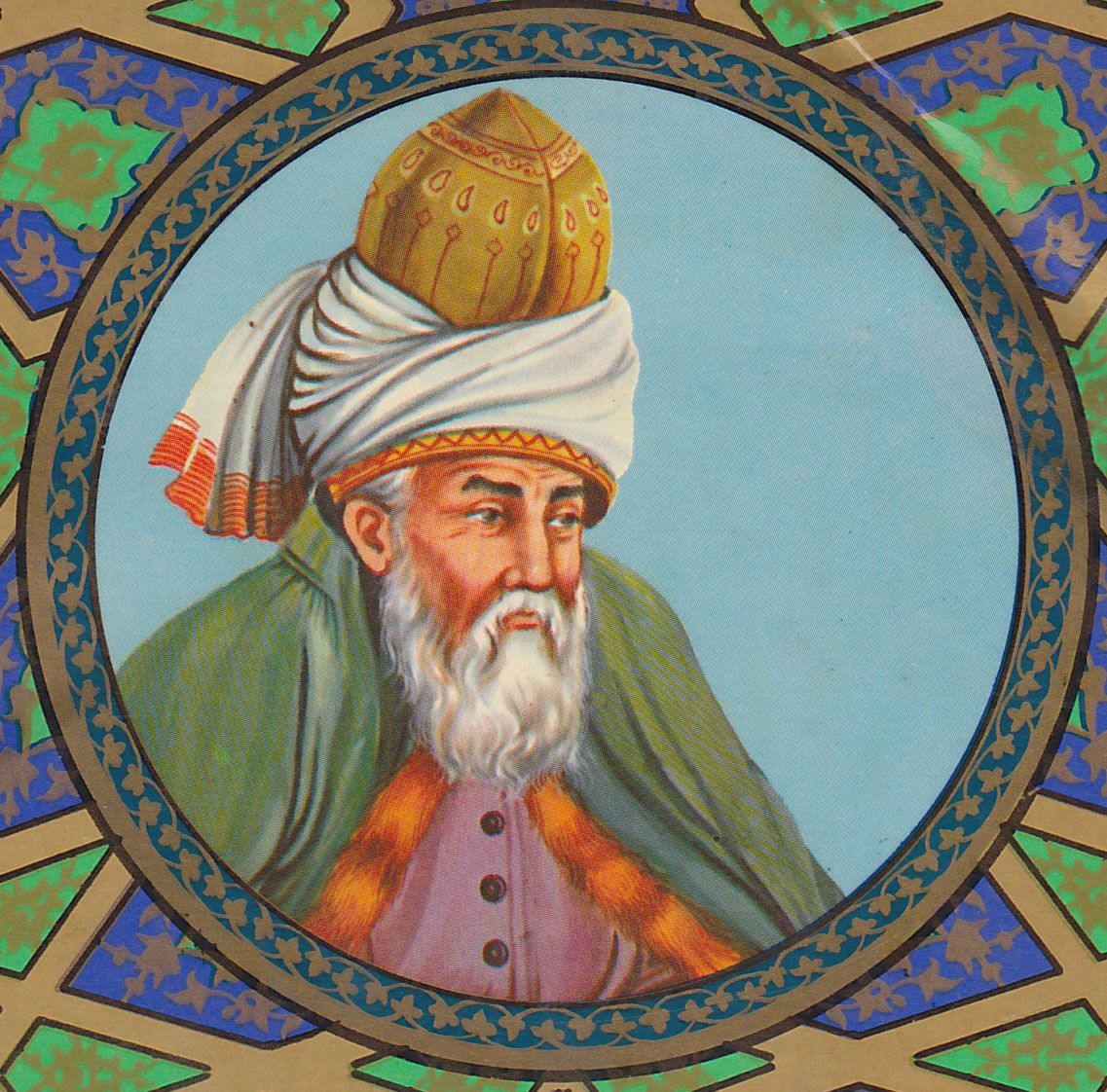The full name of rumi is Jalāl ad-Dīn Muhammad Rūmī and he is also known as Jalāl ad-Dīn Muhammad Balkhī but simply this personality is known as Rumi. Rumi was a 13th-century Persian poet, theologian, Sufi Mystic and jurist. The most famous personality of age was born on the Eastern shores of the Persian Empire on 30th September, 1207. He was born in the city of Balkh in what is now known as Afghanistan and this was finally settled in the town of Konya, in what is now known as Turkey.
In these days almost three countries claim him that Rumi is their national poet these countries are Iran, Afghanistan and Turkey.
Now Rumi is one of the most extensively read poets in America. Rumi is consider as one the brightest creative talents of world. As Shahram Shiva has said that Rumi deals with the human condition and that is always relevant.
Rumi is a person who is able to verbalize the highly personal and often most confusing world of personal development and growth in a very direct and clear fashion. He includes everyone but he does not hurt somebody’s feelings.

The great work of Rumi has been translated into many of the best languages of world including German, Russian, French, Spanish and Italian.
Rumi is appearing in a growing number of genres including workshops, concerts, readings, dance performances, paintings and other creative creations.
Related More: Top Ten Rumi Quotes by Great Sufi Poet Rumi
In one of the workshop Mr. Shiva asked a group of about fifty participants to define why Rumi meant so much to them. After getting their results he was able to group their responses in 12 distinct categories which are given below
Non-Intellectual:
They found Rumi to accommodate to their emotions, hearts instincts rather than intellects.
Levels:
These respondents found many levels in poetries of Rumi. The more these respondent learned about Rumi, the more they appreciated Rumi for depth and were encouraged to dig deeper.
Unity:
They found the sense of unity in the poetries of Rumi and found them to be very attractive.
Friend:
These respondents found Rumi to be a friend.
Personal Process:
Reading poets of Rumi for these respondents is a personal process. They closely associate themselves with Rumi.
Grace Descending:
These respondents felt Grace descending, every time when they recite poem of Rumi poem.
Longing:
These respondents associated with the sense of longing in the poems of Rumi.
Love Affair:
For some of the participants Rumi was like a lover.
Cultural Bridge:
These respondents found Rumi to form a cultural bridge for the Turks, Persians, the Arabs and Afghanis in this country.
They Don’t Even Like Poetry:
Some respondents expressed that they do not like poetry but still they love read the poems of Rumi.
Participate in the Process:
These respondents found Rumi extremely communicative and found themselves participating in Rumi’s own process.
Spiritual Guide:
These participants found poems of Rumi to be a spiritual guide for them.
Top Rumi’s Quotes:
- This is love: to fly toward a secret sky, to cause a hundred veils to fall each moment. First to let go of life. Finally, to take a step without feet
- You left and I cried tears of blood. My sorrow grows. It’s not just that you left. But when you left my eyes went with you. Now, how will I cry?
- “The wound is the place where the Light enters you.”
- The garden of love is green without limit and yield many fruits other than sorrow or joy. Love is beyond either condition: without spring, without autumn, it is always fresh.
- Through Love all that is bitter will be sweet, through love all that is copper will be gold, Through love all dregs will become wine, through love all pain will turn to medicine.
- Listen! Calm up your mouth and be silent like an oyster shell, for that tongue of yours is the enemy of the soul, my friend. When the lips are silent, the heart has a hundred tongues.
- Grief can be the garden of compassion. If you keep your heart open through everything, your pain can become your greatest ally in your life’s search for love and wisdom.
- Everyone has been made for some particular work, and the desire for that work has been put in every heart.
- Everything that is made beautiful and fair and lovely is made for the eye of one who sees
- Let the beauty of what you love be what you do.
